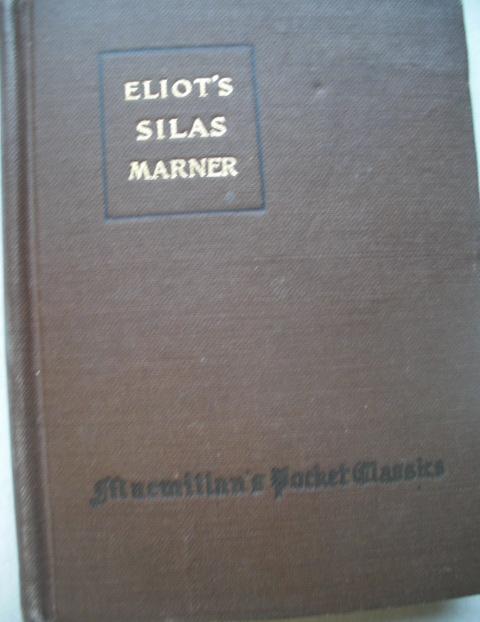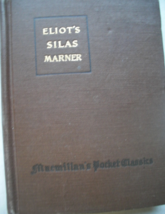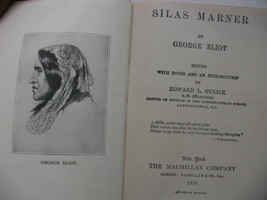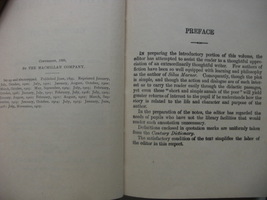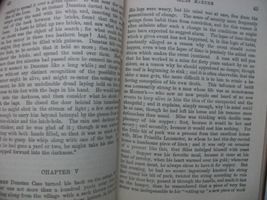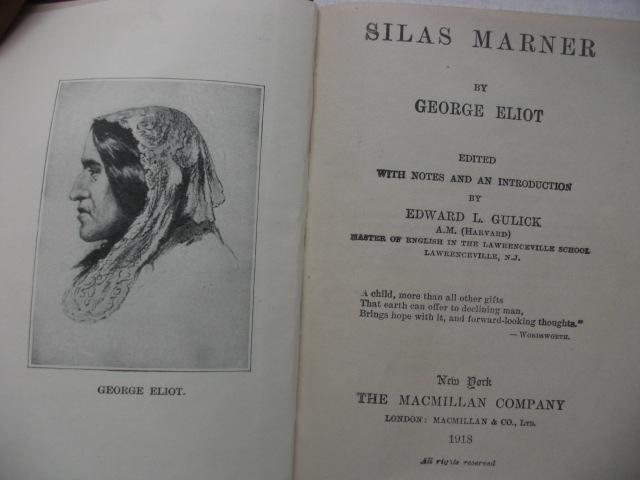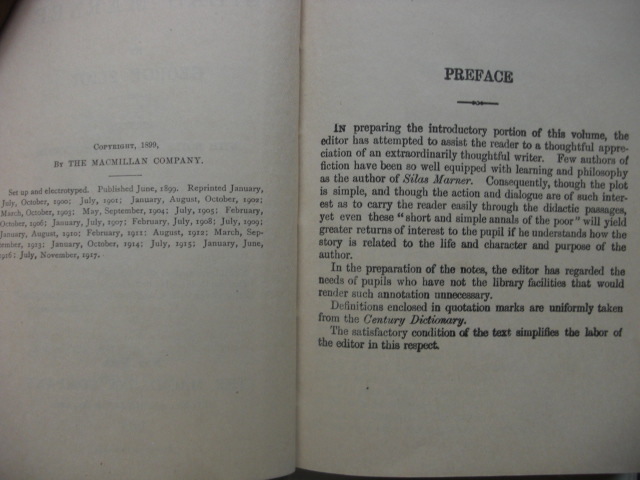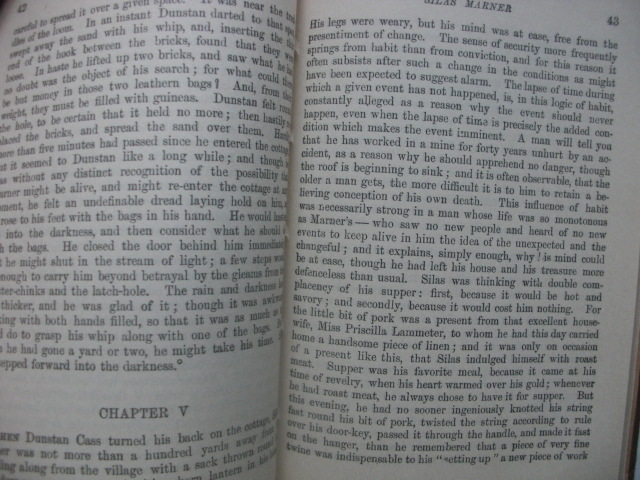Rendered at 20:00:33 05/11/25
Free Shipping
Silas Marner, written by George Eliot, edited with notes and an Introduction by
£48.96 GBP
Ships from
United States

Shipping options
FREE in United Kingdom
Ships from
United States

Return policy
Purchase protection
Payment options
PayPal accepted
PayPal Credit accepted
Venmo accepted
PayPal, MasterCard, Visa, Discover, and American Express accepted
Maestro accepted
Amazon Pay accepted
Nuvei accepted
Shipping options
FREE in United Kingdom
Ships from
United States

Return policy
Purchase protection
Payment options
PayPal accepted
PayPal Credit accepted
Venmo accepted
PayPal, MasterCard, Visa, Discover, and American Express accepted
Maestro accepted
Amazon Pay accepted
Nuvei accepted
Item traits
| Category: | |
|---|---|
| Quantity Available: |
Only one in stock, order soon |
| Condition: |
Very Good |
| Special Attributes: |
Illustrated |
| Author: |
George Eliot |
| Book Title: |
Silar Marner |
| Language: |
English |
| Topic: |
Weaver of Raveloe |
| Format: |
Hard Cover |
| Publisher: |
The Macmillan Company |
| Genre: |
Historical Fiction |
| Publication Year: |
1918 |
| Original Language: |
English |
| Narrative Type: |
Fiction |
| Type: |
Pocket Classic |
| Features: |
illustrated |
| Country/Region of Manufacture: |
United States |
| Edition: |
unknown |
| Intended Audience: |
Adults |
| Vintage: |
Yes |
| Number of Pages: |
216 |
Listing details
| Shipping discount: |
Seller pays shipping for this item. |
|---|---|
| Price discount: |
10% off w/ $100.00 spent |
| Posted for sale: |
More than a week ago |
| Item number: |
1470470779 |
Item description
Silas Marner: The Weaver of Raveloe is the third novel by George Eliot. It was published in 1861. An outwardly simple tale of a linen weaver, the novel is notable for its strong realism and its sophisticated treatment of a variety of issues ranging from religion to industrialization to community.
Plot summary: The novel is set in the early years of the 19th century. Silas Marner, a weaver, is a member of a small Calvinist congregation in Lantern Yard, a slum street in Northern England. He is falsely accused of stealing the congregation's funds while watching over the very ill deacon. Two pieces of evidence implicate Silas: a pocket knife, and the discovery in his own house of the bag formerly containing the money. There is the strong suggestion that Silas' best friend, William Dane, has framed him, since Silas had lent his pocket knife to William shortly before the crime was committed. Lots are drawn in the belief – also shared by Silas – that God will direct the process and establish the truth, but they indicate that Silas is guilty. The woman Silas was to marry breaks their engagement and marries William instead. With his life shattered, his trust in God lost, and his heart broken, Silas leaves Lantern Yard and the city for a rural area where he is unknown.
Silas travels south to the Midlands and settles near the rural village of Raveloe in Warwickshire where he lives isolated and alone, choosing to have only minimal contact with the residents beyond his work as a linen weaver. He devotes himself wholeheartedly to his craft and comes to adore the gold coins he earns and hoards from his weaving.
Mary Ann Evans, known by her pen name George Eliot, was an English novelist, poet, journalist, translator and one of the leading writers of the Victorian era. She was born in 1819 at a farmstead in Nuneaton, Warwickshire, England, where her father was estate manager. Mary Ann, the youngest child and a favorite of her father's, received a good education for a young woman of her day. Influenced by a favorite governess, she became a religious evangelical as an adolescent.
Her first published work was a religious poem. Through a family friend, she was exposed to Charles Hennell's "An Inquiry into the Origins of Christianity". Unable to believe, she conscientiously gave up religion and stopped attending church. Her father shunned her, sending the broken-hearted young dependent to live with a sister until she promised to reexamine her feelings. Her intellectual views did not, however, change. She translated Das Leben Jesu, a monumental task, without signing her name to the 1846 work.
After her father's death in 1849, Mary Ann traveled, then accepted an unpaid position with The Westminster Review. Despite a heavy workload, she translated The Essence of Christianity, the only book ever published under her real name. That year, the shy, respectable writer scandalized British society by sending notices to friends announcing she had entered a free "union" with George Henry Lewes, editor of The Leader, who was unable to divorce his first wife. They lived harmoniously together for the next 24 years, but suffered social ostracism and financial hardship. She became salaried and began writing essays and reviews for The Westminster Review.
Renaming herself "Marian" in private life and adopting the penname "George Eliot," she began her impressive fiction career, including: Adam Bede (1859), The Mill on the Floss (1860), Silas Marner (1861), Romola (1863), and Middlemarch (1871). Themes included her humanist vision and strong heroines. Her poem, "O May I Join the Choir Invisible" expressed her views about non supernatural immortality: "O may I join the choir invisible/ Of those immortal dead who live again/ In minds made better by their presence. . ." D. 1880.--Her 1872 work Middlemarch has been described by Martin Amis and Julian Barnes as the greatest novel in the English language.
Added to your wish list!
Get an item reminder
We'll email you a link to your item now and follow up with a single reminder (if you'd like one). That's it! No spam, no hassle.
Already have an account?
Log in and add this item to your wish list.


